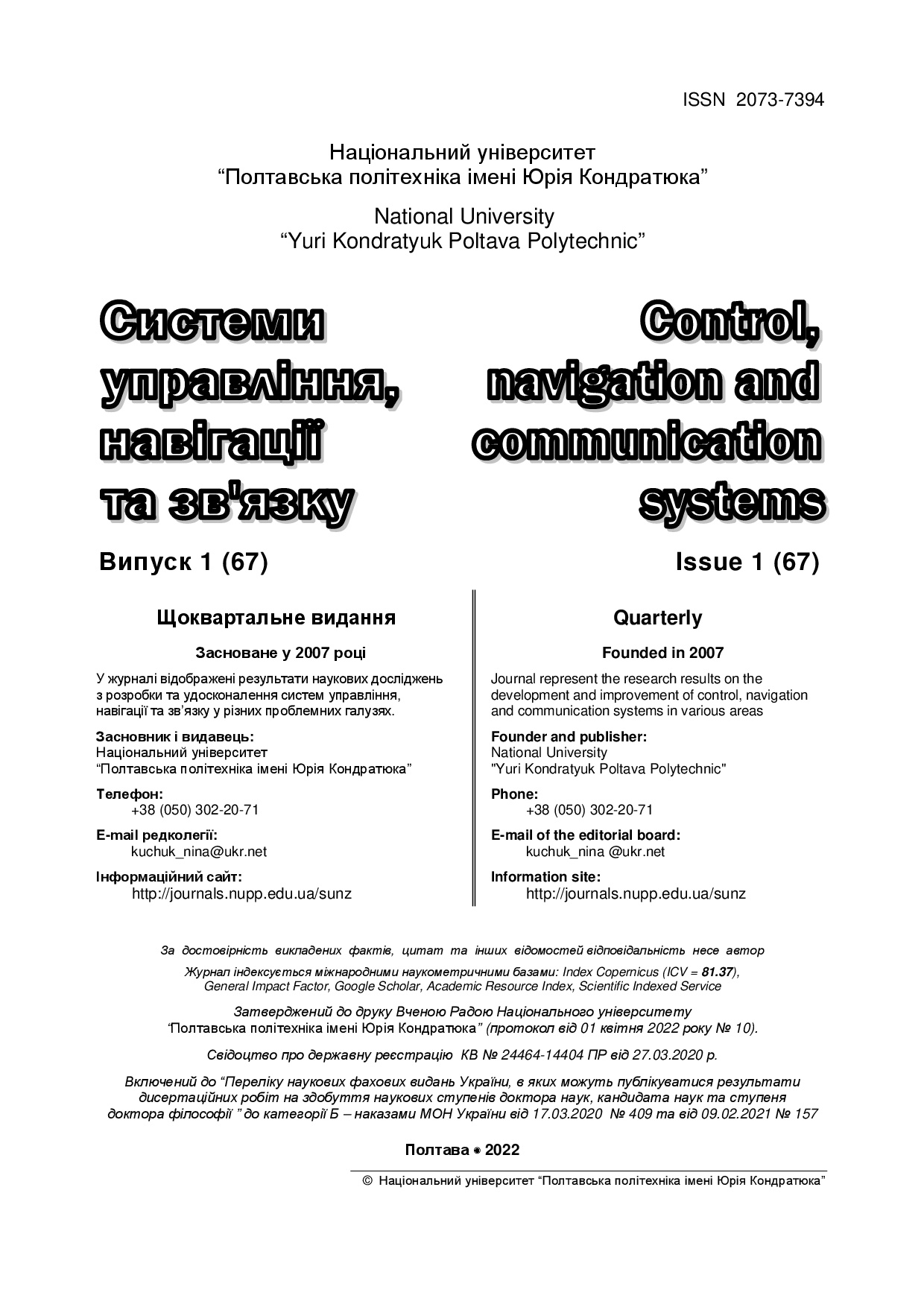МУЛЬТИАГЕНТНИЙ ПІДХІД ДО КЕРУВАННЯ ОБЧИСЛЕННЯМИ В ГЕТЕРОГЕННОМУ РОЗПОДІЛЕНОМУ ОБЧИСЛЮВАЛЬНОМУ СЕРЕДОВИЩІ
DOI:
https://doi.org/10.26906/SUNZ.2022.1.038Ключові слова:
мультиагентне керування, агенти, розподілені обчислення, надійність, розрахункова складністьАнотація
Надійність сучасних систем керування обчисленнями в гетерогенному розподіленому обчислювальному середовищі, поряд з ефективністю, живучістю, безпекою, ефективністю керувя, є важливою складовою їхньої якості. Все частіше ці системи потрапляють до категорії «критичних», тобто мають абсолютний вплив на діяльність організацій та підприємств, у межах яких вони функціонують. Втрата працездатності таких систем навіть на короткий час призводить до серйозних проблем, пов'язаних із втратою доходу, непередбаченими витратами, простомвиробництва та персоналу, втратами часу, а часом і до техногенних катастроф. Як відомо, найбільший вплив на надійність систем управління надає надійність та відмовостійкість комплексу програмно-технічних засобів. Тому вирішення завдань, пов'язаних із підвищенням надійності функціонування програмної частини систем є найактуальнішим завданням. В даний час отримані значні результати в галузі оцінки та прогнозування показників надійності елементів та типових програмних комплексів на стадії їх проектування; відомо велике число методів, доведених до алгоритмів та програм; розроблено низку нормативних документів щодо проектної оцінки надійності. Однак завдання оцінки надійності в масштабі реального часу, коли необхідний точний та оперативний облік цілого ряду факторів, вирішено недостатньо. Для вирішення задачі мультиагентного підходу керування обчисленнями в гетерогенному розподіленому обчислювальному середовищі використані методи системного аналізу, теорії множин – для розробки моделі розподілу завдань, моделей завдань та обчислювальних ресурсів, загальної теорії систем – для дослідження та розробки методів розподілу завдань, теорії логіко-імовірнісного моделювання – для моделювання обчислювальних процесів. У статті розглянуто мультиагентний підхід керування обчисленнями в гетерогенному розподіленому обчислювальному середовищі. Алгоритм базується на використанні економічних механізмів регулювання попиту і пропозиції ресурсів обчислювального середовища. Описано архітектура мультиагентного підходу і функції агентів. Особливу увагу приділено розрахунку надійності плану виконання завдання на основі логіко-імовірнісного методу.Завантаження
Посилання
Malashenko Ju.E., Konovalov M.Gh., Nazarova Y.A. (2011) Task management in heterogeneous computing systems. Izv.RAN. Theory and control systems. No. 2. P. 43–61.
Skakalina O.V. (2018) Innovative concept of complex distributed control systems. Control, navigation and communication systems. Vol. 2, No. 48. P. 24–29.
Agrawal D., Jaiswal L. H., Singh I., Chandrasekaran K. (2012) An Evolutionary Approach to Optimizing Cloud Services.Computer Engineering and Intelligent System. Vol. 3, No. 4. P. 47–54.
Casalicchio, E., Menasce, D.A. (2004) QoS in Grid computing. IEEE Internet Computing. Vol. 8, No. 4. P. 85–87.
Sukhoroslov O.V. (2015) The combined use of high-performance resources and grid infrastructures within the Everest cloud platform. Supercomputing Days in Russia: Proceedings of the International Conference, September 28-29, 2015, Moscow. P.706–711.
Vyktorova V.S., Volyk B.Gh., Stepanjanc A.S. (2006) Reliability Analysis of the Computational Control Complex by the Method of Combining Calculation Models. Reliability. No. 2 (17). P. 53–59.
Cherkesov Gh.N., Rjabynyn Y.A. (1981) Logical and probabilistic methods for studying the reliability of structurally complex systems. M.: Radio and communication. 264 p.
Tomas Kh. Kormen (2006). Algorithms: construction and analysis. Introduction to Algorithms. Chapter 34. М.: Вильямс. 1296p.
Kostenko V.A., Zoryn D.A. (2012) Algorithm for Synthesizing the Architecture of a Real-Time Computing System with Account for Reliability Requirements. Izv. RAN. Theory and control systems. No. 3. P. 76–83.
Kshemkalyani A. D., Singhal M. (2008) Distributed Computing: Principles, Algorithms and Systems. Cambridge University Press. 756 p.
Bychkov Y.V., Boghdanova V.Gh., Korsukov A.S., Oparyn Gh.A., Feoktystov A.Gh. (2014) Multi-agent approach to managing distributed computing in a clustered Grid system. Izv. RAN. Theory and control systems. No. 5. P. 95–105.
Korshunov Ju.M. (1987) Mathematical foundations of cybernetics. M.: Energy. 624 p.
Feoktystov A.Gh., Bыchkov Y.V., Oparyn Gh.A., Kanter A.N. (2014) Multi-agent algorithm for the distribution of computing resources based on the economic mechanism for regulating their supply and demand. Bulletin of computer and information technologies. No.1. P. 39–45.
Yzmalkov S., Sonyn K., Judkevych M. (2008) Theory of economic mechanisms. Questions of Economics. No. 1. P. 4–26.
Mozhaev A.S. (1994) Current state and some directions of development of logical and probabilistic methods of systems analysis. Theory and information technology for modeling the security of complex systems. St. Petersburg: IPMASH RAN. P.23–53.
Kuchuk Gh.A. (2018) Current state and trends in the development of computer systems of critical applications. Control, navigation and communication systems. Vol. 1, No. 47. P. 110–113.
Soroka M.Ju. (2020) The method of adapting the behavior of agents in the intelligent training system for the training of air traffic controllers. Control, navigation and communication systems. Vol. 2, No. 60. P. 17–20.
Ulichev O.S. (2018). Research of models of information dissemination and information influences in social networks. Control, navigation and communication systems. Vol. 4, No. 50. P. 147-151.




